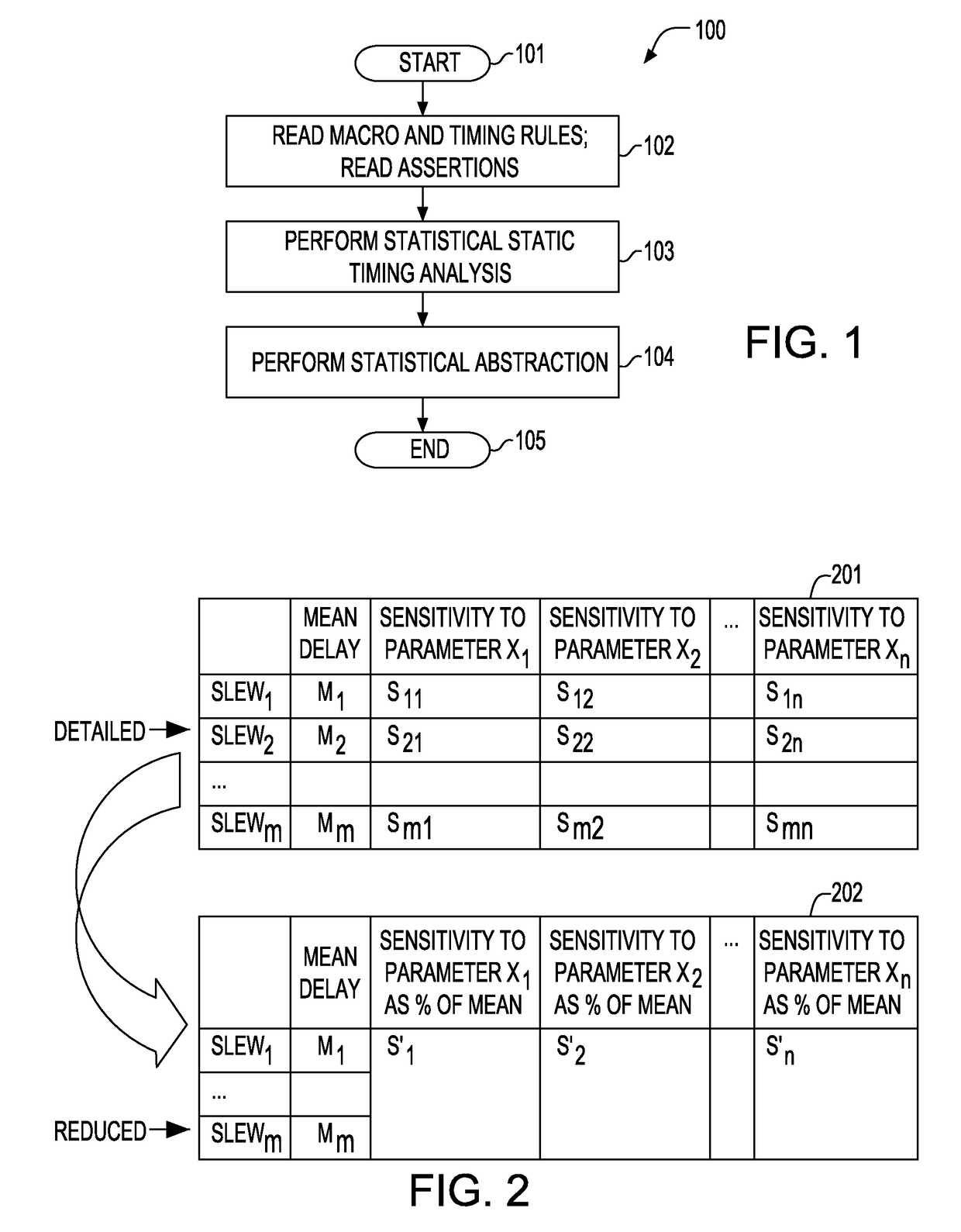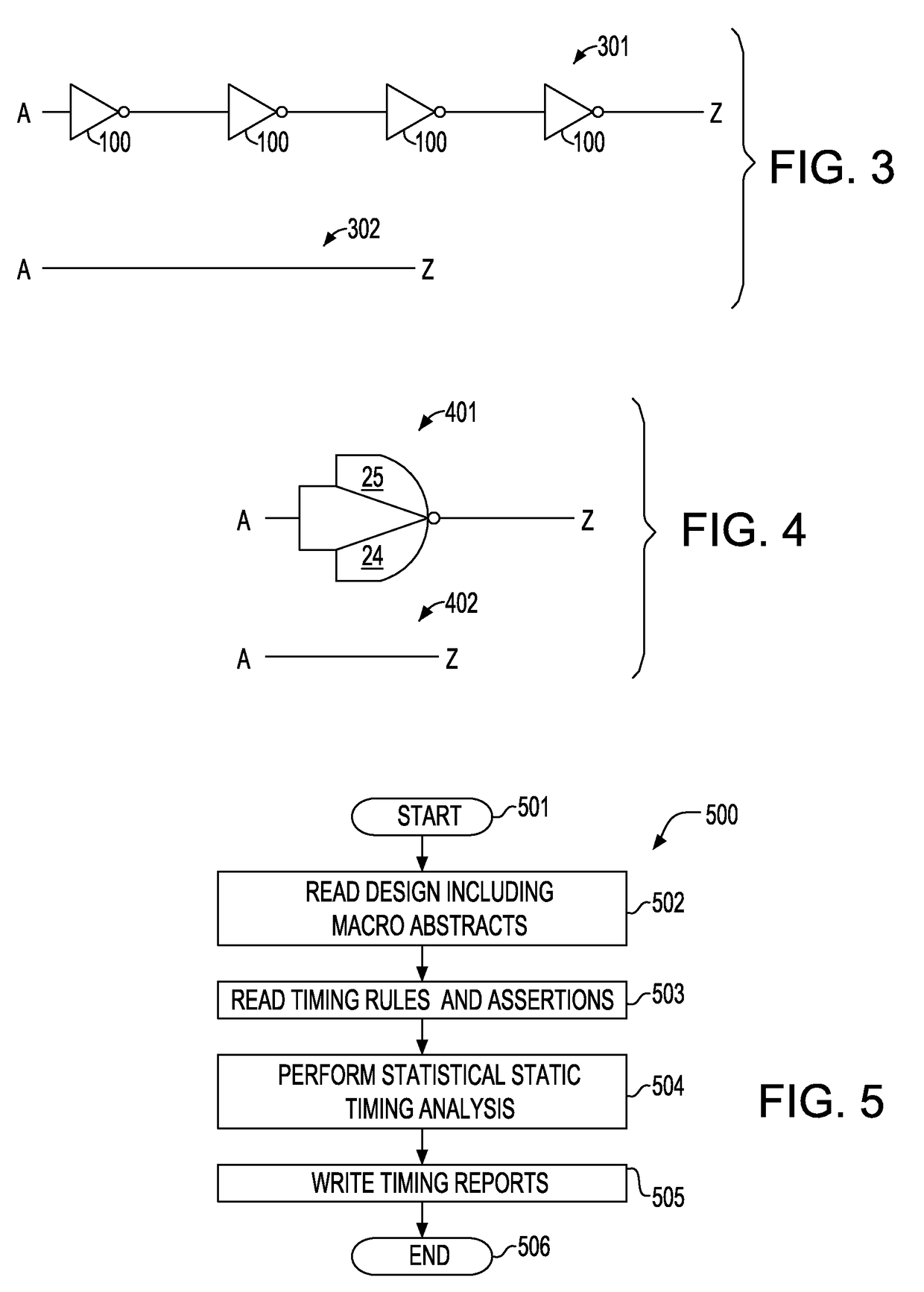Performing a statistical timing abstraction for a hierarchical timing analysis of VLSI circuits
a hierarchical timing analysis and statistical timing abstraction technology, applied in the field of design automation, can solve the problems of inability to use the circuit in the timing flow, the circuit simulation, and the design accuracy of the transistor level design is increasing in size and complexity, so as to reduce the size and complexity of the original timing model, and improve the accuracy of the analysis
- Summary
- Abstract
- Description
- Claims
- Application Information
AI Technical Summary
Benefits of technology
Problems solved by technology
Method used
Image
Examples
Embodiment Construction
[0024]The present invention and the various features and advantageous details thereof are explained more fully with reference to the non-limiting embodiments that are illustrated in the accompanying drawings and detailed in the following description. Descriptions of well-known components and processing techniques are omitted so as to not unnecessarily obscure details of the present invention.
[0025]Referring to FIG. 1, there is shown a flow diagram illustrating an embodiment of a method for generating a statistical timing abstract model of a macro. Method 100 is initialized in step 101. In step 102, the macro is read in along with the timing models for the macro and timing assertions. The macro may be a gate level design with industry standard timing models such as Liberty©, or may be a transistor level design which requires a circuit simulator to obtain delay and slew (or waveform) information during static timing analysis. The statistical timing model for the design is also read in...
PUM
 Login to View More
Login to View More Abstract
Description
Claims
Application Information
 Login to View More
Login to View More - R&D
- Intellectual Property
- Life Sciences
- Materials
- Tech Scout
- Unparalleled Data Quality
- Higher Quality Content
- 60% Fewer Hallucinations
Browse by: Latest US Patents, China's latest patents, Technical Efficacy Thesaurus, Application Domain, Technology Topic, Popular Technical Reports.
© 2025 PatSnap. All rights reserved.Legal|Privacy policy|Modern Slavery Act Transparency Statement|Sitemap|About US| Contact US: help@patsnap.com


